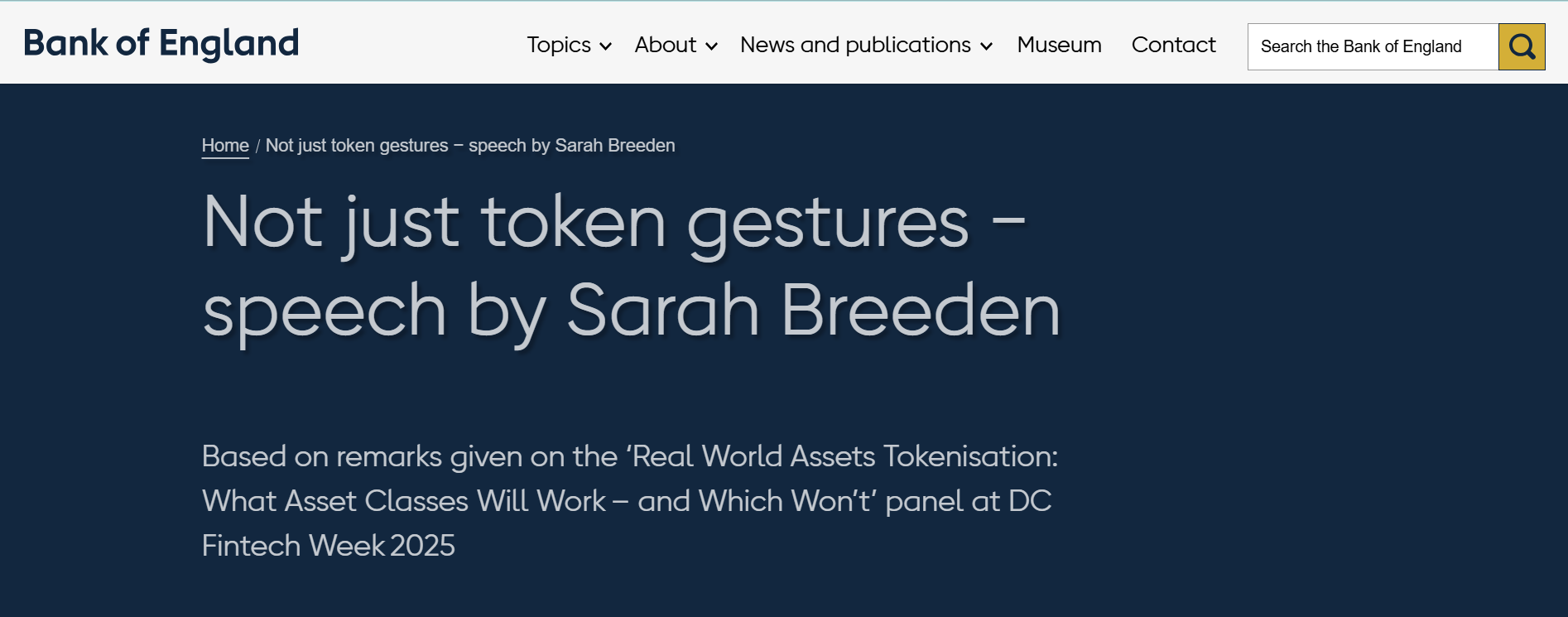Bank of England Clarifies Stablecoin Limits Are Only Temporary, Aims for Smooth Transition
Quick Breakdown
- Temporary Limits: BoE’s proposed stablecoin caps are short-term measures to support a stable financial transition.
- Consultation Incoming: Public feedback will shape the final framework, including exemptions and business-specific limits.
- Systemic Stability First: The central bank aims to prevent sudden outflows from banks while fostering digital currency innovation.
BoE deputy governor says stablecoin limits are temporary safeguards
Bank of England Deputy Governor Sarah Breeden has emphasized that proposed restrictions on stablecoin holdings and transaction sizes are only temporary measures aimed at safeguarding the financial system during its adjustment to digital assets .
 Deputy Governor Sarah Breeden says stablecoin limits are temporary safeguards to support a smooth transition into a multi-money system. Source: Bank of England
Deputy Governor Sarah Breeden says stablecoin limits are temporary safeguards to support a smooth transition into a multi-money system. Source: Bank of England
Speaking at DC Fintech Week on Wednesday, Breeden explained that the central bank’s intention is to gradually ease the limits once the financial sector has adapted to the growing use of stablecoins. “We would expect to remove the limits once we see that the transition no longer threatens the provision of finance to the real economy,” she said.
Industry pushback and proposed adjustments
The Bank of England first proposed the limits in a November 2023 discussion paper, suggesting caps between £10,000 and £20,000 ($13,429–$26,858) to maintain financial stability. However, the plan drew sharp criticism from industry groups in September, who warned it could undermine innovation and discourage crypto businesses from operating in the UK.
To address these concerns, Breeden revealed that the BoE will launch a public consultation before the end of the year to gather feedback on the proposal. The consultation will explore potential higher limits for businesses and exemptions for supermarkets and major corporations, as well as a carveout for firms participating in the UK’s digital sandbox, introduced in October 2024 to test blockchain and distributed ledger technologies.
Managing systemic risks and market transitions
Breeden stressed that the central bank’s primary concern is the risk of rapid outflows from traditional banks into stablecoins, which could trigger a “precipitous drop in credit” available to UK households and businesses. Unlike the US, she noted, the UK economy relies more heavily on bank credit, making a controlled transition essential.
While reaffirming the BoE’s position as the core settlement entity for wholesale and asset market payments, Breeden acknowledged that tokenized deposits and regulated stablecoins could play complementary roles in the evolving financial landscape.
She called on both traditional financial institutions and new entrants to engage with the BoE, saying: “We need the industry to work with us — to experiment, to develop use cases, and to deploy this technology.”
Disclaimer: The content of this article solely reflects the author's opinion and does not represent the platform in any capacity. This article is not intended to serve as a reference for making investment decisions.
You may also like
Crypto cards have no future
Having neither the life of a bank card nor the problems of one.

MiCA regulation poorly applied within the EU, ESMA ready to take back control

$674M Into Solana ETF Despite Market Downturn

